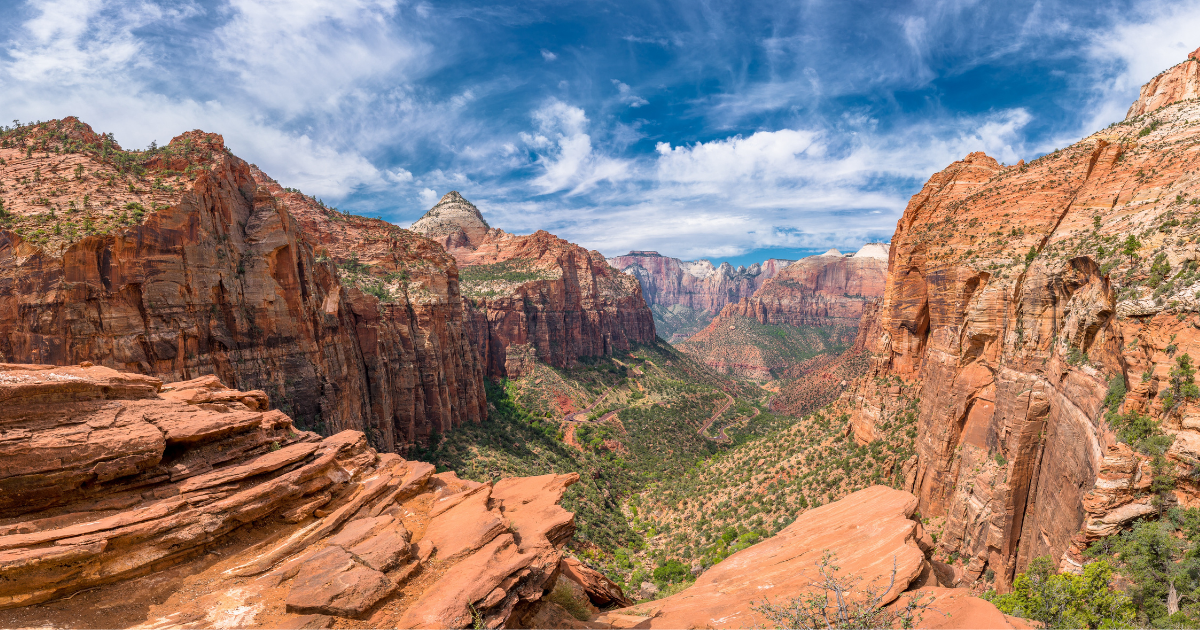(The Center Square) – Three people have filed a lawsuit against the National Park Service for refusing to take cash for park entrance fees alleging its NPS Cashless program violates federal law.
The complaint, filed in federal court earlier this month, seeks to have a judge declare NPS Cashless unlawful. The suit alleges that three visitors were denied entrance to national parks in Arizona, New York and Georgia. The complaint further alleges that the “National Park Service no longer accepts American money at approximately twenty-nine national parks, national historic sites, national monuments, and national historic parks around the country.”
An NPS spokesperson said the service doesn’t comment on litigation. NPS has yet to formally respond to the complaint. A response is required by May 16, according to court records. NPS has stopped accepting cash at some parks to be better stewards of that money.
“Reducing cash collections allows the National Park Service to be better stewards of the fees collected from visitors,” according to its website. “Cashless options reduce transaction times at busy entrance stations and decrease the risk of theft. Moving to a cashless system improves accountability and consistency, reduces chances of errors, and maximizes the funding available for critical projects and visitor services.”
The website further notes that there are alternatives.
“Each park that has completed the transition to cashless fee collection has an alternative option for visitors who are not able to pay with a credit or debit card. The specific arrangements vary by park, and park staff onsite will be able to assist,” according to NPS. “Most parks that have converted to cashless fee collection have had an overwhelmingly positive experience.”
The complaint argues that NPS Cashless can’t stand.
“NPS’s violation of federal law cannot be overlooked in favor of any purported benefit NPS Cashless could hope to achieve such as reducing logistics of handling cash collected,” plaintiff’s attorney Ray Flores II wrote in the complaint. “Moreover, there is an increased cost to the NPS in going cashless, such as additional processing fees that will be borne by NPS and by visitors who ultimately fund the Federal Government through taxes, in addition to personal surcharges and bank fees visitors may incur under NPS Cashless policy.”
The suit asks a judge “to restore entrance to NPS sites to those who cannot access non-cash payment methods (and those who choose not to) by declaring NPS Cashless to be unlawful.”
It alleges NPS Cashless “violates NPS’ mission to provide the public access to and enjoyment of the NPS parks, sites, and resources.”
“Even though United States law obligates NPS to accept cash for public charges such as entrance fees, Plaintiffs are unable to visit the Subject Locations due to the NPS Cashless policy if they exercise their right to pay in U.S. Currency,” according to the complaint. “NPS cashless is contrary to law since American money is not accepted as legal tender to visit the nation’s treasures and must be set aside.”
In a 2023 news release, NPS explained why Death Valley National Park was going cashless. It said that Death Valley collected $22,000 in cash in 2022. Processing that cash cost the park $40,000, according to the release.
“Cash handling costs include an armored car contract to transport cash and park rangers’ time counting money and processing paperwork,” according to the release. “The transition to cashless payments will allow the NPS to redirect the $40,000 previously spent processing cash to directly benefit park visitors.”
According to NPS, of the more than 400 national parks in the National Park System, 108 charge an entrance fee.
“The current Federal Lands Recreation Enhancement Act (FLREA) allows the National Park Service to collect and retain revenue and requires that fee revenue is used to enhance visitor experience,” according to the fee website. “At least 80% of funding from recreation fees stays in the park where it is collected, and the other 20% is used to benefit parks that do not collect fees or parks which generate only a small amount of revenue.”
NPS’ 2025 budget justification notes that it is responsible for 429 park units, 25 national scenic and national historic trails, and 66 wild and scenic rivers. The request for $3.58 billion is an increase of $101.1 million compared to the prior fiscal year, not including supplemental funding.
Flores, the attorney for the plaintiffs, said it was too early to predict how long the suit could take to reach a resolution.
“It is always hard to predict the case’s trajectory until I see the first response. D.C., as with all federal courts, are efficient. But absent NPS abolishing their unlawful cashless policy (effectively mooting the controversy) there is no way to accurately predict how long it will take for full resolution,” he told The Center Square.
The complaint also names the U.S. Department of the Interior. That agency also did not immediately respond to a request for comment.
By Brett Rowland | The Center Square




